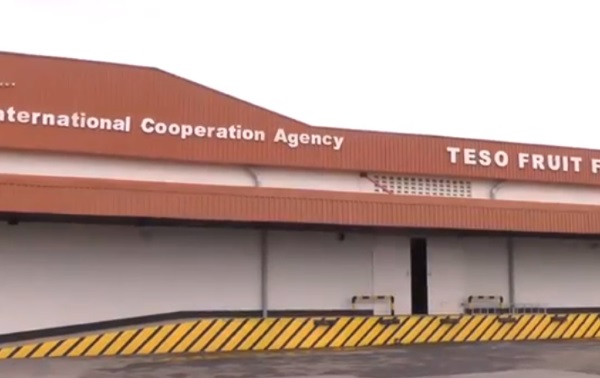After years of waiting Teso Fruit Factory is finally fully installed and must be operational by the end of 2018. “So the factory is ready to start but of now, we have a lot of things, we want to call work in progress, we have to clear them off the queue.” Said, Ronald Akakwanswa – Manager Production and Technical Services, Soroti Fruit Factory. “We have done dry tests to test the equipment by using water to see if there are any leakages and there was none. Now we are going into the test runs of the factory by using fruits; to test the fruits with the machines, to see how the machines are performing where fine tuning has to be done and we tend to start on that next month in June and it will run for three months.” Said, Yudaya Kadondi – Project Coordinator, Soroti Fruits Limited.
The plant known officially as Soroti Fruit Factory is co-owned by the government and Teso farmers comprising of about 6,000 members. “The Soroti Fruits Limited which is the company which will own and manage the factory. The shareholding will be 80% for UTC and 20% for Teso Tropical Fruit Cooperative Union.” Said, Amelia Kyambadde – Minister of Trade, Industry and Cooperatives. The key issue, however, will be how the farmers benefit. Teso Tropical Fruit Cooperative will be the contracted fruit supplier to the factory but as it is on the ground, there is more fruit than the factory will be able to process at least in the beginning.
“My expectation I think you will find that prices will change anyway and the farmer definitely will benefit.” Said, John Brown Elieru – Fruit Farmer, Soroti. “If the factory people do not give us a reasonable price, then I must go in for the price that will prevail the market price.” Said, Stephen Engwau – Fruit Farmer, Soroti. However, the factory has the price guaranteed at 50,000 per 100-kilogram bag which they are confident beats the competition. The Soroti Fruit Factory is now up after the long wait expectations run high. So the lingering question is will it impact the household incomes of these fruit farmers or it will be another white elephant in the womb?

